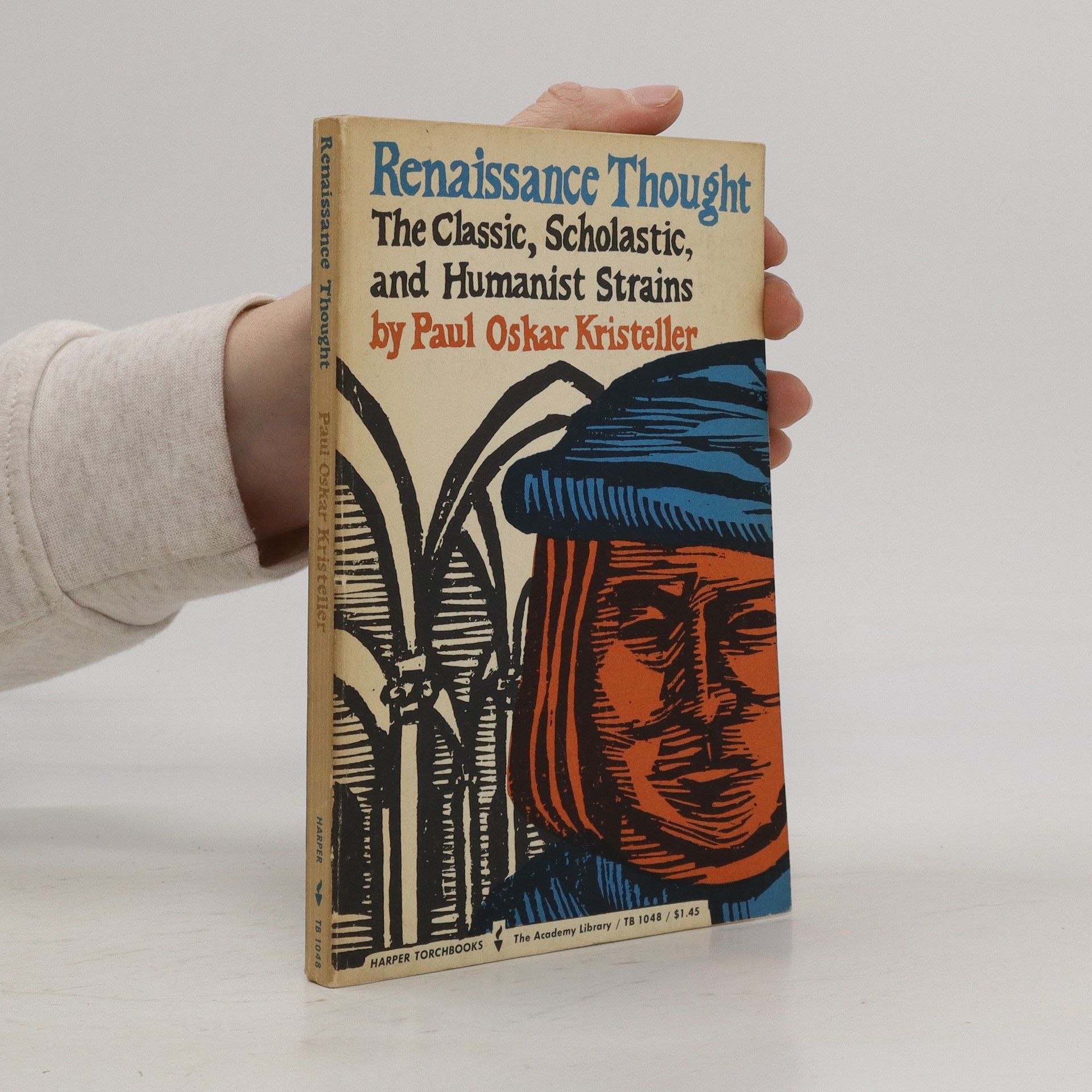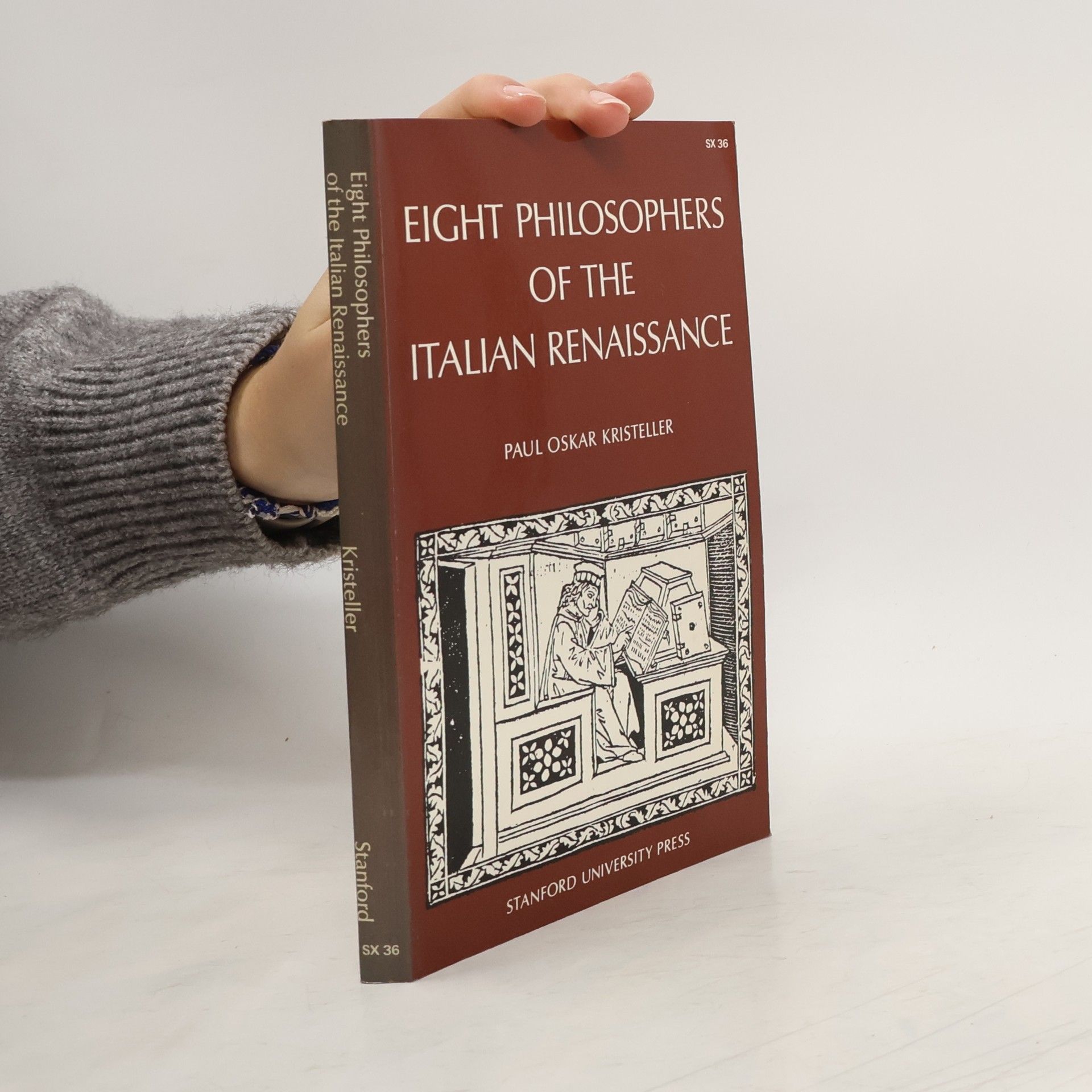Medieval Aspects of Renaissance Learning
- 212 pages
- 8 hours of reading
Paul Oskar Kristeller was a pivotal scholar of Renaissance humanism, dedicating his work to the philosophy of this transformative era. His research delved into the core thinkers of Renaissance thought, and his extensive scholarship, particularly his monumental catalog of uncatalogued manuscripts, offers an invaluable resource for understanding Renaissance culture. Kristeller's influence extended to the philosophy of art, where his essays became seminal readings. He also spearheaded a significant project charting the reception of classical works through the Middle Ages and Renaissance.







Renesanční humanismus na pozadí portrétů významných dobových myslitelů Čtivé přiblížení myšlenkového světa osmi velkých postav italské renesanční filosofie – Petrarky, Lorenza Vally, Marsilia Ficina, Pika della Mirandola, Telesia, Patriziho a Bruna – a jejich prostřednictvím i vývoje celého renesančního myšlení. Tuto linii doplňuje studie o středověkých předchůdcích renesančního humanismu. Z anglického originálu přeložil a doslovem opatřil Tomáš Nejeschleba.
This volume treats a fascinating but much neglected period in the history of ancient philosophy between the third and first centuries BC.
Features essays that deal with Renaissance humanism and philosophy, and also with Renaissance theories of art. This title focuses on topics such as humanist learning, humanist moral thought, the diffusion of humanism, Platonism, music and learning during the early Renaissance, and the modern system of arts in relation to the Renaissance.
Italian Renaissance thought has been gaining ever-increasing recognition as seminal to the thought of the whole Renaissance period, affecting in many subtle ways the development and understanding of artistic, literary, scientific, and religious movements. The importance, then, of this detailed and careful survey of Italy's leading Renaissance philosophers and the intricate philosophical problems of the time can scarcely be exaggerated. Based upon the 1961 Arensberg Lectures, given at Stanford University, this collection of essays offers a genuinely unified interpretation of Italian Renaissance thought by describing and evaluating the philosophies of eight pivotal Petrarch, Valla, Ficino, Pico, Pomponazzi, Telesio, Patrizi, and Bruno. The essays not only discuss the life, writings, and main ideas of these eight thinkers, but also establish through a connective text, the place each of them occupies in the general intellectual development of the Italian Renaissance.